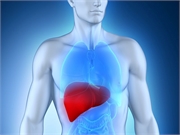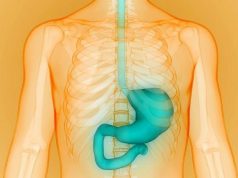Recommendations address bleeding and thrombotic risk in cirrhosis; portal, mesenteric vein thrombosis
MONDAY, Jan. 13, 2020 (HealthDay News) — In a clinical guideline from the American College of Gastroenterology, published in the January issue of the American Journal of Gastroenterology, recommendations are presented for management of disorders of the hepatic and mesenteric circulation.
Douglas A. Simonetto, M.D., from the Mayo Clinic in Rochester, Minnesota, and colleagues reviewed the literature to develop recommendations for disorders of the hepatic and mesenteric circulation.
The authors noted that fresh-frozen plasma is not recommended to improve thrombin generation in patients with cirrhosis; volume expansion can increase portal pressure, possibly resulting in variceal hemorrhage. In most situations, prophylactic infusion of plasma to decrease bleeding risk is futile. Outside of significant renal dysfunction or sepsis, prophylactic platelet transfusions are not recommended before common procedures such as routine variceal banding or paracentesis. Antifibrinolytic agents such as epsilon aminocaproic acid and tranexamic acid are not recommended to reduce bleeding in the absence of hyperfibrinolysis. Doppler ultrasound is recommended as the initial noninvasive modality for portal vein thrombosis diagnosis. To assess the extension of thrombus into the mesenteric veins and exclude tumor thrombus, contrast-enhanced computed tomography or magnetic resonance imaging is recommended for patients with cirrhosis who develop new portal and/or mesenteric vein thrombus. In the absence of any contraindications, anticoagulation is recommended for all patients without cirrhosis with acute symptomatic portal or mesenteric vein thrombosis.
“It is the suggestion of the authors that these recommendations and guidelines be used only as a framework to make decisions in routine clinical practice,” the authors write.
Copyright © 2020 HealthDay. All rights reserved.








